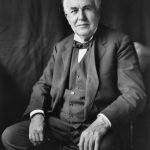Are Addicts Criminals?
Despite all the awareness about addiction being a ‘disease’, there is an undeniable stigma attached to alcoholics and drug addicts.
Addicts and alcoholics are not just viewed as weak-willed and morally deficient, but also as criminals.
This fact is further compounded by the fact that there is a well-established and complex link between drugs, alcohol and crime.
While it is true that long-term substance use may erode the ethical systems of the individuals – they tend to manipulate, lie, cheat or steal to fuel or hide their addiction – the associated stigma is reinforced by labelling them as “criminals”.
This labelling becomes a significant barrier for alcoholics and addicts to seek treatment. Individuals would not like to be associated with “criminals”.
They shy away from addiction treatment facilities or services, including joining self-help groups like Alcoholics Anonymous.
The link between addiction and crime
There is a well-established and complex link between drugs, alcohol and crime.
The link is associated with addicts committing crimes such as theft, burglary, fraud and shoplifting to get fund their addiction.
However, there are other ways that drugs and crime are linked, including:
- Suppliers of drugs getting caught
- People who commit violent offences while under the influence of drugs, particularly
alcohol. These may include murders, sexual assaults and domestic violence - Driving offences under the influence of alcohol or drugs
- Violence involving drug gangs or towards drug users who owe them money.
Addiction related crime has often been sensationalised in the media. This perception may be exaggerated for several reasons:
- Many people who are dependent on drugs were involved in criminal activity before becoming dependent on drugs, so the drug use may not be the cause of the crime
- Poverty, unemployment and social exclusion are often underlying factors rather than the drug use itself
- Many people commit crimes to feed, clothe and house themselves and their families
- Most people who use illegal drugs (the majority are non-problematic users) do not commit crimes.
Understanding the relationship between drugs and crime is about keeping matters in perspective rather than falling for media scare stories.
Not all addicts are criminals
Addiction does not discriminate. It can impact anyone, regardless of education, financial or social status.
A large number of individuals with addiction issues seeking treatment do not have any criminal history. Many of them are highly qualified and have successful careers.
History is replete with famous persons who are afflicted by this disease. Politicians, musicians, sportspersons, businesspersons, doctors and other professionals – all are susceptible.
Though the list is long, let us look at a few of the well-known personalities who battled addiction:

Demi Lovato.
She was a 17-year-old actress on family-friendly TV when she says she first used cocaine. As her singing career took off, so did her problems with drugs and alcohol. In 2010, she first sought treatment for addiction, along with mental health issues, including bipolar and eating disorders. She has addressed her ongoing recovery in interviews, on social media, and in her music.

Ben Affleck.
Affleck, who won Academy Awards for Good Will Hunting and Argo and starred as Batman in the DC Comics franchise, has been open about his issues with alcohol. He went to rehab for the first time in 2001 and has called addiction “a lifelong and difficult struggle.” Following a stay at a treatment centre in 2018, Affleck said on social media, “If you have a problem, getting help is a sign of courage, not weakness or failure.”

Bradley Cooper.
He’s been nominated for several Academy Awards, but the actor went through some hard times on his way to success. He says years of drug and alcohol misuse threatened to ruin his life, and in 2004 at the age of 29, he made the decision to stop using them. He’s since become one of Hollywood’s most bankable leading men.

Derry Barrymore.
She made headlines in 1989 by going to rehab at just 13 and announcing she was an addict. She was 6 when the movie ET launched her career. She says she started drinking when she was nine and quickly moved on to marijuana and cocaine. She spent her teenage years trying to overcome her notoriety and has since enjoyed success as an actress and producer.

Sir Elton John.
The AIDS crisis inspired the singer to address his addictions. Sir Elton John says when his friend, the young AIDS activist Ryan White, died in 1990, he felt a lot of regrets that he had spent the previous decade absorbed in alcohol and cocaine misuse. He sought treatment in 1990 and established the Elton John AIDS Foundation 2 years later. He was knighted by Elizabeth II for services to music and charitable services in 1998.

Eric Clapton.
The guitar legend survived a rock culture of drug experimentation. He became addicted to heroin in the early 1970s. Clapton recovered, but he continued misusing alcohol and cocaine for years. He finally found success in rehab in 1987. In 1998, he built the Crossroads Centre for alcohol and drug treatment on the Caribbean island of Antigua.

Stephen King.
He’s been behind some of the biggest names in the thriller genre (both in writing and in film). He is considered one of the most prolific writers of all time. Stephen King struggled with rampant substance abuse for years. Beer was King’s method of choice for keeping ideas flowing and his typewriter clacking. Soon though, that addiction progressed to harder substances of abuse, including cocaine. After years of watching the self-destruction, King’s family and friends decided to intervene. It took several attempts, but with the right help, the monumental horror novelist was finally able to kick his addiction not just to drugs but to alcohol too.

Sigmund Freud.
Praised still for his work in the psychoanalytical field, Freud was an avid fan of cocaine. He became addicted through his research that began in 1894 on the coca plant’s abilities as a treatment for mental health ailments. He stopped using the drug after he began to suffer health effects a few years later.

Van Gogh.
The prized artist wasn’t a stranger to a depressed mood. Some have theorised that Van Gogh’s mental health issues were drug-induced. While it’s possible, data points to an underlying condition like manic depression leading him to abuse Digitalis — a medicine he was prescribed for the treatment of epilepsy. The artist met an untimely fate in 1890 due to suicide.

Thomas Edison.
Another fan of cocaine, Edison used his favourite substance in an elixir form, as did many in his time. Generally, he would drink wine that was laced with cocaine. Interestingly, the incandescent light bulb inventor is now said to have had both attention deficit hyperactivity disorder and dyslexia.

George W Bush.
If George W. Bush hadn’t made the sudden choice to stop drinking after his 40th birthday, he might have never become president of the United States. After a wild night of celebrating the big 4-0, Bush woke up the following morning with quite the hangover. He stopped drinking after the incident.

Buzz Aldrin.
He was the second human, minutes after Neil Armstrong, to set foot on a celestial body other than the Earth. The flight of Apollo 11 made Aldrin one of the most famous persons on our planet. Aldrin returned home to an Air Force career stripped of purpose or direction. The twin demons of depression and alcoholism emerged–the first of which Aldrin confronted early and publicly, and the second of which he met with denial until it nearly killed him. He burned through two marriages, his Air Force career came to an inglorious end, and he found himself selling cars for a living when he wasn’t drunkenly wrecking them. Redemption came when he finally embraced sobriety, gained the love of a woman, Lois, who would become the great joy of his life.
You can do it too!
Addiction doesn’t have a set target – a specific kind of person that it pounces on. Absolutely anyone can develop a problem with drugs or alcohol.
You don’t have to be a criminal. So, if you think you or your loved one is having an issue with addiction, reach out for professional support.
As so many accomplished and famous addicts have shown us, addiction isn’t permanent. Nor is it a death sentence.
Recovery is possible, and a new life awaits you if you commit to getting help.
Call our Freephone 0800 1404044 and get prompt, confidential and effective help today!



